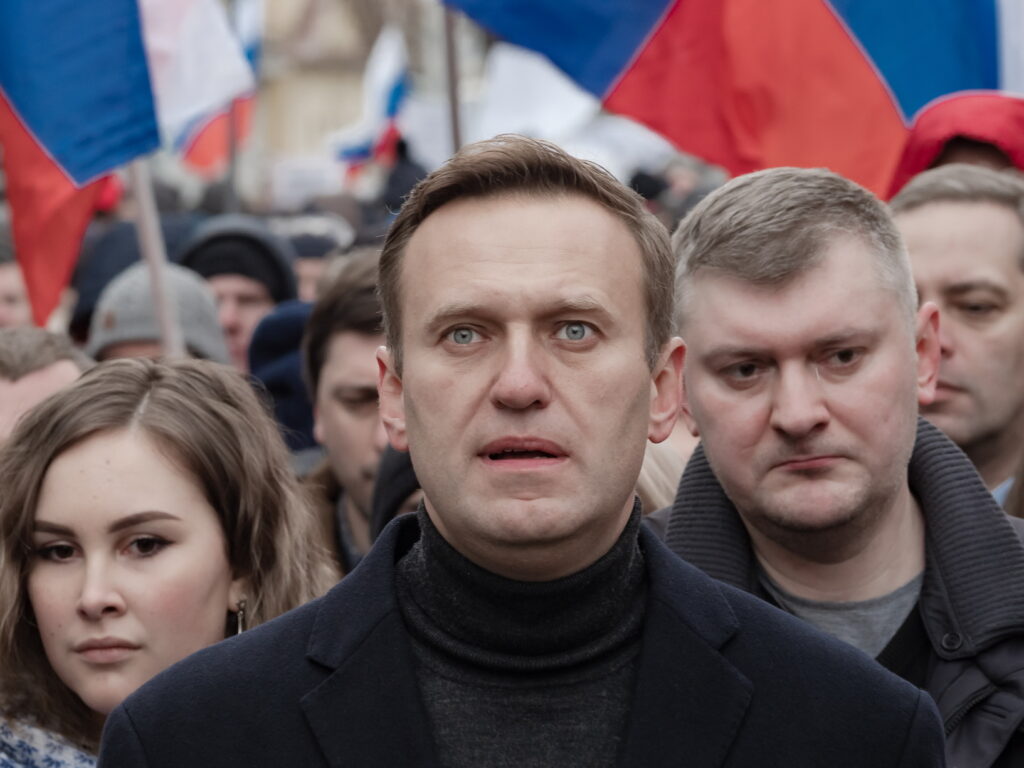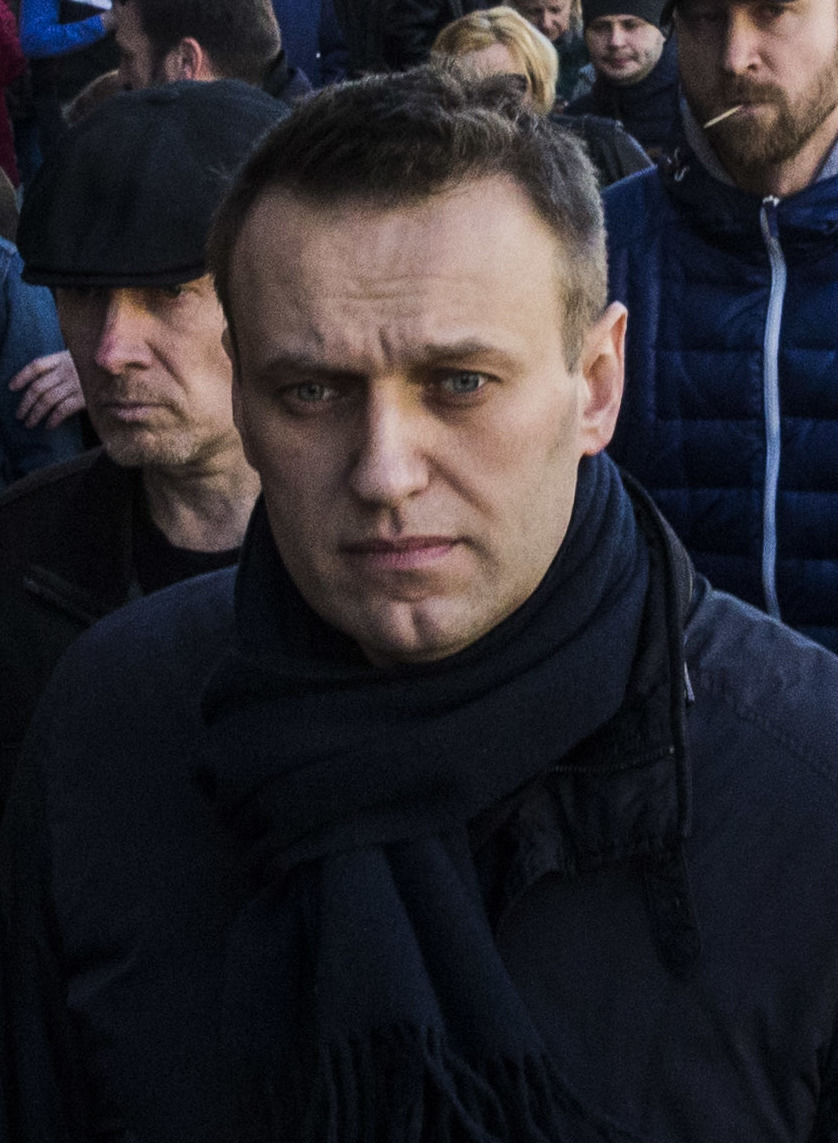Moscow — The most well-known member of the Russian opposition, Alexei Navalny, passed away at the age of 47 in a distant Russian prison.
The Federal Penitentiary Service in the Yamalo-Nenets Autonomous District, which is located above the Arctic Circle, announced Navalny’s passing on Friday.
Following a walk in the prison yard, Alexei Navalny “felt sick,” according to a statement from the prison administration, and he quickly lost consciousness. Emergency medical personnel’s attempts to revive him “failed to provide beneficial results.”
Due to his years of criticizing Russian President Vladimir Putin, Alexei Navalny was serving a lengthy prison sentence for a variety of offenses, including extremism.
Putin has been notified about Alexei Navalny’s passing, according to Dmitry Peskov, the spokesperson for the Kremlin. He stated the reason of death is being investigated by jail medical staff.
World wide reactions came in quick succession. The demise of Alexei Navalny in a Russian prison, coupled with his obsession and terror, “further emphasizes the weakness and rot at the heart of the system that Putin has established,” according to U.S. Secretary of State Antony Blinken. Russia bears the blame for this.
Long-standing concerns were raised about Alexei Navalny’s safety and well-being while inside.

Family members and supporters of Alexei Navalny claim that in an apparent attempt to keep him isolated from the outside world, officials have frequently refused Alexei Navalny medical treatment and put him to lengthy, harsh periods of solitary confinement. In April, a spokesman for his Anti-Corruption Foundation in Washington, D.C., stated that Navalny’s prison environment was progressively poisoning him.
However, a video from Russia’s independent SOTA news agency seems to capture Alexei Navalny appearing happy and healthy during a court appearance the day before he passed away. Alexei Navalny took part through a video transmission.
Serving a 19-year prison term for charges of extremism, embezzlement, and fraud, Alexei Navalny’s sentencing was widely perceived as a form of retaliation by the Kremlin for his political involvement.
Over the course of more than ten years, Navalny, a fierce opponent of President Putin, gained widespread support for his campaigns, which channeled public fury over corruption at the highest levels of government and advanced the idea that Russians could one day live differently.
He opposed Putin’s increasingly oppressive leadership and Russia’s invasion of Ukraine even from his prison cell.
In fact, the opposition leader revealed plans to mobilize Russians against Putin in the run-up to the March presidential elections in the days leading up to his disappearance in December.
A fresh voice of protest
On June 4, 1976, Navalny was born in a village outside of Moscow.
Initially gaining notoriety as a lawyer, he was involved in inciting shareholder uprisings at Russia’s embattled state enterprises.
Later, he became the anti-government protesters’ breakout political hero. A strong orator, he famously denounced the 2011 parliamentary elections as “the party of criminals and thieves” in order to criticize the faulty process.
Putin’s resolve to maintain control over Russian politics was demonstrated by the crackdown on demonstrators that followed, even as the Kremlin managed some degree of political rivalry.
Despite fending off an embezzlement conviction generally perceived as a Kremlin tactic to undermine his influence with voters, Navalny was permitted to run for mayor of Moscow in 2013. Yet, he came in second, almost sending the contest into a runoff with the candidate personally selected by the Kremlin, all thanks to an enthusiastic street campaign.
When Navalny attempted to run against Putin for the presidency in 2018, the Kremlin took fewer chances. Despite a court ruling that disqualified him, Navalny continued with his covert campaign, opening offices around the country and outlining his political platform.
In an interview at the time, Navalny told NPR, “I want to live in a normal country and refuse to accept any discourse about Russia being doomed to be a lousy, impoverished, or submissive country.”
“I want to live here, and I cannot put up with the injustice that has become the norm for a lot of people.”
As opposed to Putin
Navalny’s casual manner, refined by an internet-fueled sense of humor, stood out even from the political sidelines in sharp contrast to Putin’s haughty demeanor.
Rick and Morty, an animated comedy, or The Wire on HBO were among the shows that Navalny frequently referenced in his talks.
In videos, his go-to greeting was “Hey, it is Navalny!” before he would criticize Putin.
It was a hint at what set the two men apart, and it was also, as Navalny’s followers contended, a threat. even in the event that Navalny was prohibited from running for office.
Putin exploited the dissatisfaction of older Russians about the fall of the Soviet Union. The optimism of a younger generation that Russia could overcome its oppressive Soviet history was harnessed by Navalny.
Putin reportedly attempted to minimize Navalny’s notoriety by forbidding him from speaking in public. Navalny parodied this strategy for his Instagram bio, mocking it with his trademark wit: “Aforementioned individual, One more politician, different activists, this gentleman Personas that were referenced.”
Putin used word salads to avoid saying Navalny’s name aloud in any of the statements.
However, Navalny’s critics extended beyond the Kremlin. Early in his political career, he actively participated in Russian nationalist movements, claiming that the opposition needed their help to succeed.
Some liberals in Russia never did forgive him. The official media called him a “fascist.”
Using social media
Navalny, who was banned from appearing on Russian national television, became an expert at using social media, especially YouTube, to spread his political message.
When Navalny established the Anti-Corruption Foundation in 2011, he brought together a group of skilled Russians who looked for proof of graft among Russia’s most influential people using public records and, on occasion, the black web.
Leading investigations, Navalny chastised ministers for ostentatious displays of wealth far exceeding their claimed salaries and, in one case, for using official aircraft to transport their corgis to dog shows.
His most well-known movie was a two-hour production released in 2021 that allowed spectators to enter a hidden Black Sea castle that Navalny said Putin had constructed at a cost of more than $1 billion.
When the movie’s viewership reached over 100 million, an oligarch with ties to the Kremlin came forward to claim he had purchased the property as an investment.
Navalny’s fan base was expanding. However, he was also opposed by the Russian elite’s elite.
Dangers and Novichok
Many national demonstrations against Putin and Kremlin favoritism were spearheaded by Navalny throughout the years. Throughout 2011, he and his allies were taken into custody fifteen times in all.
However, as Navalny’s popularity increased, especially among younger Russians, so did the dangers to his safety.
He was exposed to a chemical substance by an attacker in May 2017 to the point where he almost lost sight in one eye.
Then, on a journey from Siberia to Moscow in August 2020, Navalny passed out. Later, as he was being treated in a coma in Germany, medical professionals discovered that he had blood traces of the Soviet nerve toxin Novichok.
Over the course of several months, Navalny recovered and collaborated with reporters to look into the attack, creating yet another sensation.
One of the would-be assassins was fooled by Navalny into admitting that he had been ordered by a Russian security service team to apply poison to Navalny’s underwear.
According to Navalny, it could only have occurred under President Putin’s direction.
The accusation was categorically denied by the Kremlin, which insisted that the strike was improvised.
As Navalny recovered in a foreign hospital, the government reopened an earlier fraud case against him, claiming he had broken his parole.
It seems that the intention behind the move was to keep Navalny in exile. Still, Navalny was determined to go back to Russia.
Critic through and through
When Navalny returned to Russia in January 2021, he was jailed right away, which sparked yet another round of rallies around the nation.
After a trial in which Navalny famously called Putin “Vladimir the Poisoner of Underpants” and said that his imprisonment was meant to scare the public, he was promptly sentenced to 2 1/2 years for parole violations.
“Millions and hundreds of thousands of people cannot be imprisoned. Throughout the trial, Navalny expressed, “I sincerely hope that people will progressively grasp this.”
“And this whole thing is going to break apart because you can not lock up the entire country once they do, and that moment will come.”
In 2022, a second fraud trial resulted in the addition of a nine-year concurrent sentence.
Authorities branded the Anti-Corruption Foundation and its members as “extremists” and tried to demolish Navalny’s political network in the meanwhile. Several friends were taken into custody. The others escaped abroad or went into hiding.
